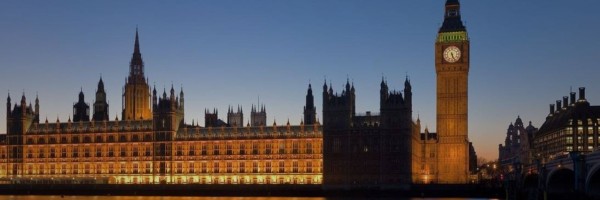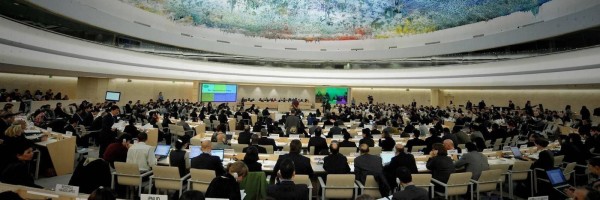On 5 July 2024, during the UN Human Rights Council’s adoption of Saudi Arabia’s Universal Periodic Review (UPR), ALQST’s Lina Alhathloul and Celia Le Noe delivered joint oral statements alongside partner organisations (the International Federation for Human Rights (FIDH), the International Service for Human Rights (ISHR) and Global Citizen). Together, the statements welcome Saudi Arabia’s acceptance of several recommendations, while pointing out some of the contradictory nature of pledges made, and expressing deep concern at the formal rejection of vital recommendations.
Statement delivered by ALQST and the International Federation for Human Rights:
Thank you Mr President.
The International Federation for Human Rights and ALQST for Human Rights view this UPR as a litmus test to the Saudi authorities’ genuine intention to improve the dire human rights situation.
We welcome the endorsement of several recommendations pertaining to the ratification of international human rights treaties, including the international convention for the protection of all persons from enforced disappearance. The authorities must now ratify the treaty, and end the practice of enforced disappearance, including of Mohammed al-Qahtani and Abdulrahman al-Sadhan.
We commend the acceptance of recommendations pertaining to cooperation with UN special procedures as well as calling for the Saudi Human Rights Commission to abide by the Paris principles.
Yet, while accepting recommendations is a necessary first step, it will not on its own bring about change, as exemplified by the third cycle of Saudi Arabia’s UPR, during which the kingdom accepted, but did not implement, key recommendations pertaining to freedom of expression, torture and ill-treatement, and women’s rights.
In order to avoid a similar scenario following this fourth cycle, it is now vital for Saudi Arabia to grant country access to independent monitors, including UN procedures and human rights organisations.
We also express deep concern at the rejection of vital recommendations. We point out the inconsistency of the mission in not accepting recommendations calling for the ratification of the ICCPR whereas it accepted to ratify core human rights treaties to which it is not yet party, as well as the contradiction between Saudi Arabia’s pledges to strengthen cooperation with UN special procedures while at the same time refusing to refrain from reprisals against HRDs for their interactions with UN rights mechanisms.
In the context of upcoming HRC elections, we call on all states to not turn a blind eye to the horrendous human rights situation in Saudi Arabia.
I thank you.
Statement delivered by ALQST, the International Service for Human Rights and Global Citizen:
Thank you, Mr. President
Our organizations ALQST for Human Rights, ISHR and Global Citizen express their disappointment at the Kingdom of Saudi Arabia’s rejection of the most important recommendations received from a number of countries in the Universal Periodic Review.
The Kingdom of Saudi Arabia rejected Recommendation No. 65 from Belgium, which states: “Refrain from reprisals against human rights defenders for interactions with UN human rights mechanisms.”
Does my government’s refusal translate into a violation of international agreements and an implicit acknowledgment of its readiness to target anyone interacting with the United Nations, including myself, and also my sister Loujain Al-Hathloul, whose court documents show that our government is targeting her because of her interaction with the United Nations?
We also express our disappointment at the rejection of recommendation No. 116, which urges the authorities to release all protesters, human rights defenders and journalists detained for exercising their right to freedom of expression. The authorities say that they reject the recommendations because some of them represent false allegations based on unreliable sources, and some of them contradict the Kingdom’s values and principles.
Given the number of opinions issued by the Working Group on Arbitrary Detention confirming that there are many arbitrary detentions in the Kingdom of Saudi Arabia, the authorities did not reject this recommendation on the grounds that it is invalid, but rather on the basis of their unwillingness to resolve this issue. We hope that the authorities will review this rejection and consider it as a matter of urgency. It is important that the authorities seriously evaluate and resolve this issue that has tarnished their reputation and made our people live in constant fear.
Finally, why was Recommendation No. 117 rejected regarding abolishing the travel ban imposed on human rights defenders who have completed their prison sentences? If the authorities are serious about reforms and opening up, all these restrictions must be lifted and repression against human rights activists must end.
Thank you.




